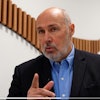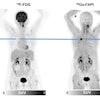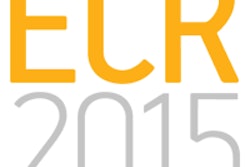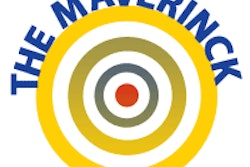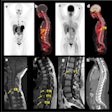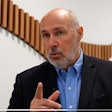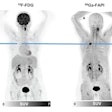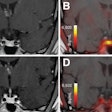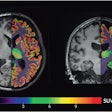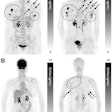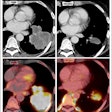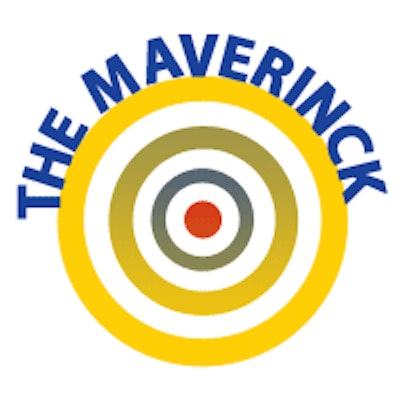
The aftermath of the 1968 student revolution had the unexpected consequence of bringing university science to almost a standstill. Endless meetings perverted and marred by irrelevant topics and pointless monologues and exchanges became the prevailing culture. In many European countries this problem has not been overcome yet -- nearly 50 years later.
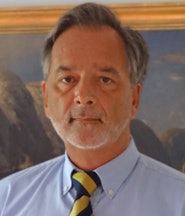 Dr. Peter Rinck, PhD, is a professor of diagnostic imaging and the president of the Council of the Round Table Foundation (TRTF) and European Magnetic Resonance Forum (EMRF).
Dr. Peter Rinck, PhD, is a professor of diagnostic imaging and the president of the Council of the Round Table Foundation (TRTF) and European Magnetic Resonance Forum (EMRF).The same kind of behavior is also inseparably bound up with political or administrative procedures -- exercised ad nauseam in the meeting rooms of Brussels. It holds for every situation of life, any category of administrative business, any brand of tasks.
"Personalized medicine"1, 2 is a new catchword in town and one of the latest Union worries; and with it the stakeholders' pilgrimage to the hot springs of money and restaurants of the city has begun.
A "stakeholder" used to be a person who keeps the money of bettors and then gives it to the winner of the bet; legally put: a third party who temporarily holds money or property while its owner is still being determined. In EU newspeak, stakeholders are people, institutions, or commercial companies wanting money from the coffers of Brussels because they believe they can get it.
In this anonymous world of "stakeholders," the idea of "personalized medicine" sounds strange. Brussels in many instances resembles Franz Kafka's The Castle governed and run by a dark and secretive bureaucracy; and the obvious thread throughout Brussels' permanent new programs and ideas mirrors the men in the novel: bureaucracy made to last forever.
The following paragraph is taken from a recent press release of the European Society of Radiology (ESR):
A roundtable discussion held on October 15 at the European Parliament, hosted by [a member of the European Parliament] and organized by the European Society of Radiology (ESR) and the European Alliance for Personalized Medicine (EAPM) [a Brussels-based industry lobbyists association], brought together representatives from various stakeholder groups. They discussed how best to support the development of personalized medicine in an era of economic austerity, demographic change, and an ever growing number of treatment options.
The host of the meeting stated that "personalized medicine is often undervalued by policymakers."
Medicine and healthcare are often used as synonyms, equivalent terms for the same activity. For me, it was interesting that some commercial people seem to understand and make a clear difference between healthcare and medicine: Medicine is performed by physicians, whereas healthcare is the commercialization of medicine. Once again, it is a question of semantics if one wants to understand the motives and considerations of the people involved. Medicine has always focused on a patient, an individual. Healthcare is group-oriented administration.
According to the press release, the president of the ESR, Dr. Guy Frija, emphasized "that in a time of constrained health budgets, demographic change, and ever increasing medical treatment options the way to achieve the personalization of medical care is through collaboration between policymakers, medical professionals, patients, and industry." He seems to understand the difference between medicine and healthcare. I hope that this was not a slip of the tongue. We have had personalized medicine for centuries. What we need is personalized healthcare, not commercial shareholder/stakeholder gains and interests.
The press release continued with this paragraph:
The chairman of the ESR Working Group on Personalized Medicine, Dr. Aad van der Lugt, and ESR expert Dr. Laure Fournier explained the crucial role medical imaging plays in personalized medicine, from customized screening procedures for cancer tumors to collecting vast amounts of data through population screening and correlating them with 'omics' data. For the ESR, the main issues are increasing the number of cohort studies with imaging, the creation of a European platform of imaging biobanks, and ensuring standardization and validation of imaging biomarkers.
I am all in favor of defending or building up a strong position for radiology, but here the platitudes chase each other. It's not science, it's not research -- it's data collection, pencil pushers and stakeholders' pie in the sky. Dehumanization and data centricity do not really overlap with a term like "personalized medicine." It smells of another attempt to create a big bazaar which will waste time, money -- and stimulate political infights.
Screening, data collection, and standardization are far away from personalized, individual medicine. It's group-oriented civil-servants' healthcare. It might be useful and lead to more epidemiological knowledge, but it's definitely not the most efficient way of helping individual patients. This is the approach of the National Security Agency (NSA) to combat terrorism -- collecting data that cannot be correlated and that nobody understands, today's leading model of self-importance of an uncontrollable dangerous bureaucracy.
Proposing this path to personalized medicine is fairly comical (another 'omics'?) and the justification amazing. I have written about the Brussels Approach to science and medicine earlier3. More so, what many people, tax-paying patients and physicians alike, find difficult to endure is being permanently ridiculed.
Dr. Peter Rinck, PhD, is a professor of diagnostic imaging and the president of the Council of the Round Table Foundation (TRTF) and European Magnetic Resonance Forum (EMRF).
References
- Rinck P. Maverinck. Never mind the fashion, let's get personal. AuntMinnieEurope.com. http://www.auntminnieeurope.com/index.aspx?sec=sup&sub=mol&pag=dis&ItemID=607399. 26 November 2012.
- Rinck P. Maverinck. Moving to the dark side: Personalized medicine revisited. AuntMinnieEurope.com. http://www.auntminnieeurope.com/index.aspx?sec=sup&sub=mol&pag=dis&ItemID=607553. 07 January 2013.
- Rinck PA: Rinckside - Bureaucracy and waste tarnish EU grants. Diagnostic Imaging Europe. 2000;16(10): 23-24. http://www.rinckside.org/Rinckside Columns/2000 10 Bureaucracy and waste tarnish EU grants.htm.
The comments and observations expressed herein do not necessarily reflect the opinions of AuntMinnieEurope.com, nor should they be construed as an endorsement or admonishment of any particular vendor, analyst, industry consultant, or consulting group.


